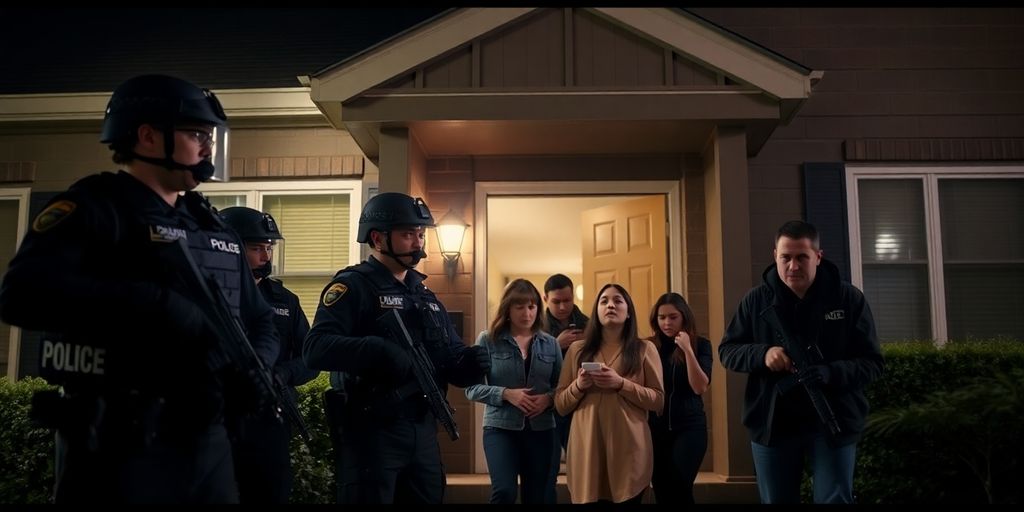Civil Rights
US Government Under Fire for Wrong-House Raids: Accountability at Stake

In a pivotal case that could reshape government accountability, the U.S. Supreme Court is deliberating on the implications of wrong-house raids conducted by law enforcement. The case, Martin v. USA, highlights the traumatic impact on innocent families and raises questions about the government’s responsibility for its actions.
Key Takeaways
- The Supreme Court is reviewing a case involving a wrong-house raid by federal agents.
- Government lawyers argue that mistakes are part of law enforcement operations.
- Justices express skepticism about the government’s defense, emphasizing the need for accountability.
- The outcome could set a precedent affecting victims’ rights in similar cases.
Background of the Case
The case stems from a botched raid where federal agents mistakenly targeted the wrong residence. During the operation, agents used a smoke grenade, causing significant distress to the family inside, which included a young child. The family is now seeking compensation for the trauma and damage caused by the raid.
Government’s Defense
In court, the government contended that errors in executing warrants are an inherent risk of law enforcement work. Jeffrey Yuanlong Liu, representing the federal government, argued that checking house numbers could expose agents to danger, suggesting that the urgency of simultaneous warrant executions justified the oversight.
However, this argument was met with skepticism from the justices. Justice Neil Gorsuch challenged the notion that such mistakes should be tolerated, questioning why basic precautions, like verifying the correct address, were not taken.
Impact on Victims
Miriam Becker-Cohen, representing the affected family, emphasized the severe emotional and psychological toll the raid inflicted. She described the incident as horrific, noting that the family was asleep when agents forcibly entered their home. The trauma experienced by the family, particularly the fear instilled in their seven-year-old son, raises critical concerns about the consequences of such government actions.
Potential Consequences of the Ruling
The Supreme Court’s decision, expected by June 4, could have far-reaching implications:
- Accountability Standards: A ruling in favor of the government may set a precedent that limits victims’ rights to seek recourse for government errors.
- Public Trust: The outcome could affect public perception of law enforcement and its accountability, potentially eroding trust in government institutions.
- Legal Precedents: A decision could influence future cases involving wrongful actions by law enforcement, either reinforcing or undermining the principle of accountability.
Conclusion
As the Supreme Court deliberates on this significant case, the balance between law enforcement practices and the rights of citizens hangs in the balance. The decision will not only impact the family involved but could also redefine the standards of accountability for government actions in the future. The nation watches closely as the court prepares to deliver its ruling, which could either uphold or challenge the status quo regarding government accountability in law enforcement operations.
Sources
-

 Press Release7 days ago
Press Release7 days agoClinical Trials Market Set for Robust Growth, Driven by Drug Development Surge and Digital Innovation
-

 Press Release7 days ago
Press Release7 days agoPediatric Vaccines Market: Safeguarding Futures, Driving Growth
-

 Press Release7 days ago
Press Release7 days agoWaterproof Structural Adhesives Market: A Comprehensive Study Towards USD 10.3 Billion in 2035
-

 Press Release7 days ago
Press Release7 days agoDownhole Tools Market: Navigating Subsurface Frontiers with Precision
-

 Press Release7 days ago
Press Release7 days agoFaropenem Sodium Market: A Potent Weapon in the Fight Against Bacterial Infections

































